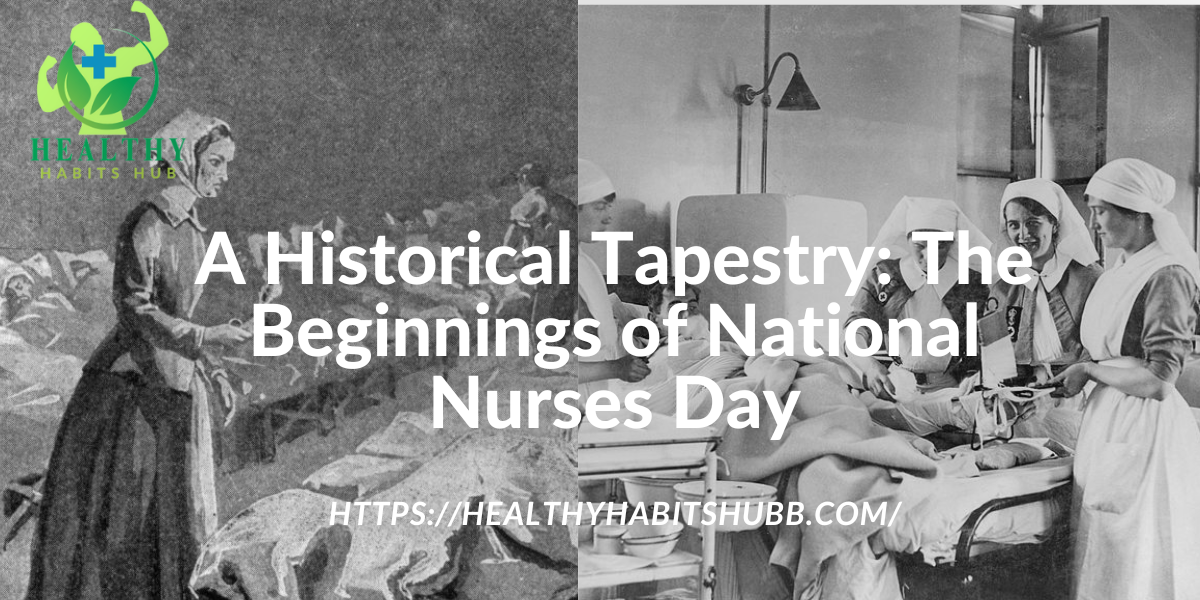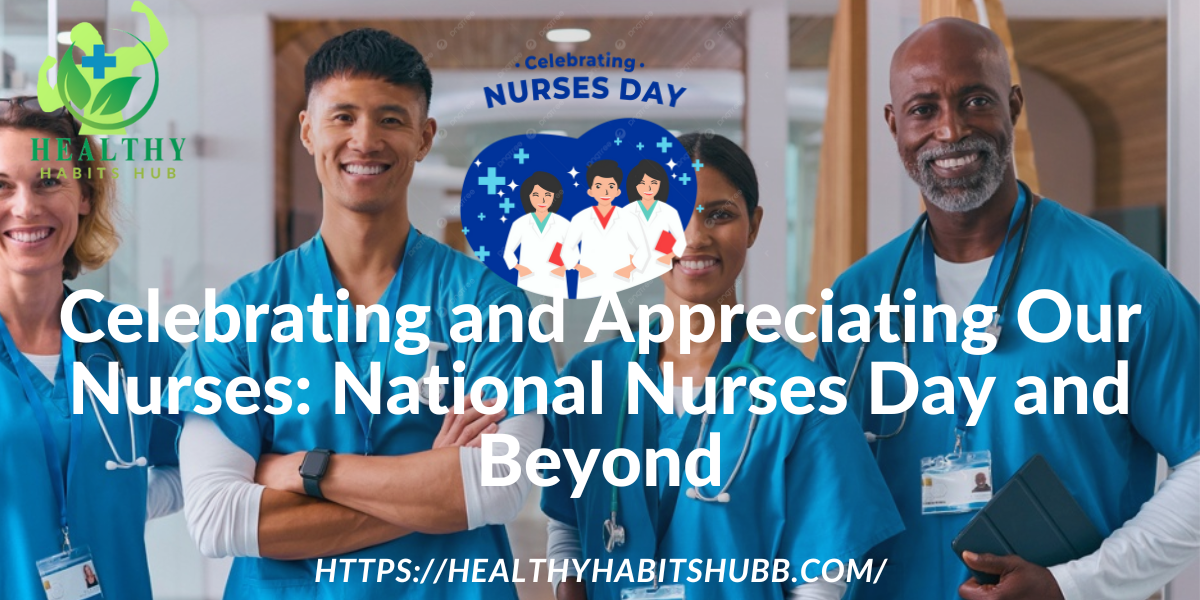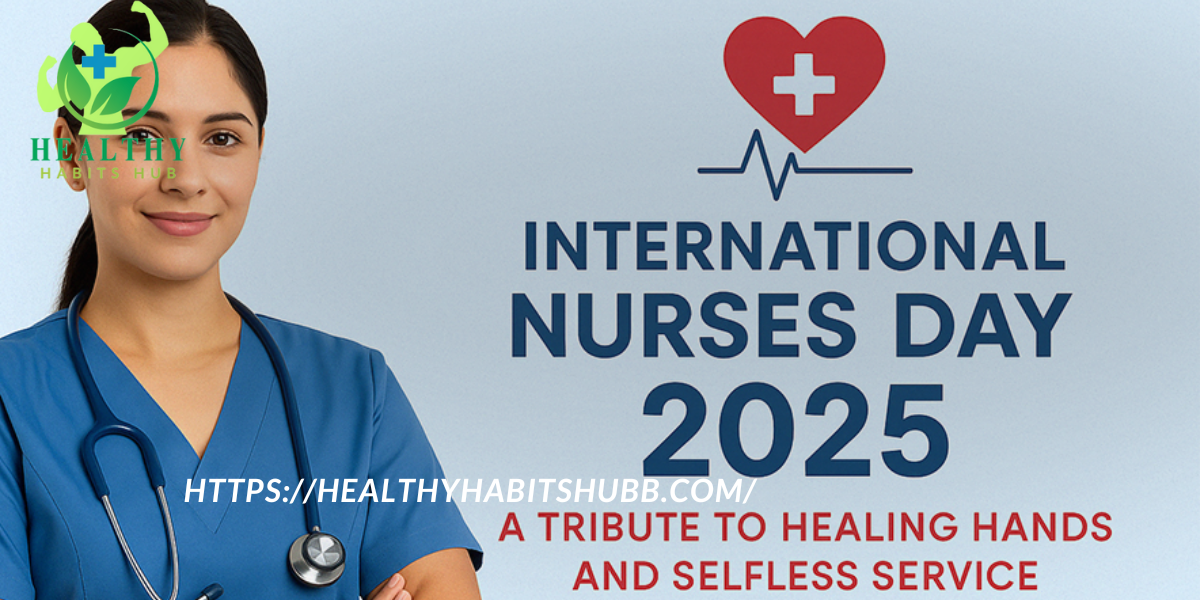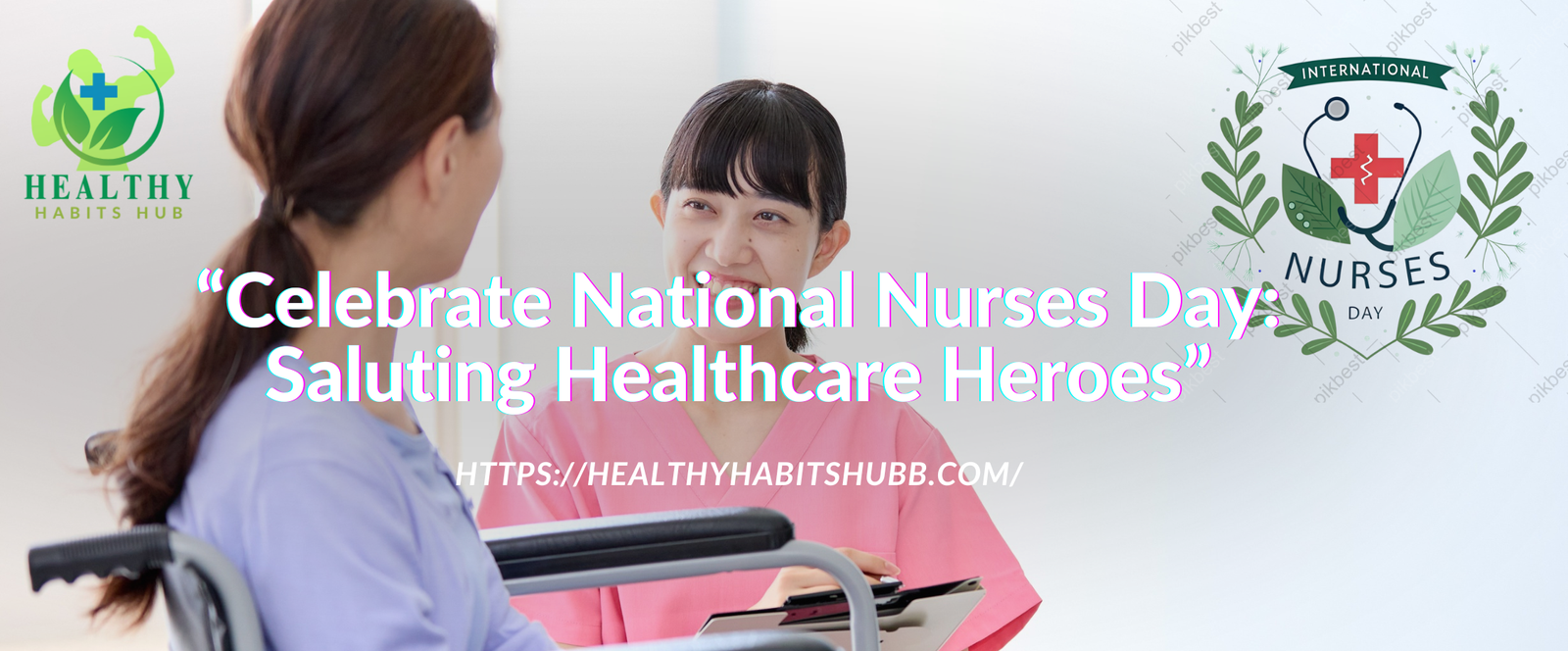Celebrating the Pulse of Healthcare: A Deep Dive into National Nurses Day
There is a highly special day in the healthcare sector each year on May 6, and that is National Nurses Day. It’s not merely another day of the year; it’s a significant day to celebrate the unrelenting commitment, deep compassion, and relentless grit of nurses nationwide. These women and men, the cornerstone of our healthcare system, frequently work behind the scenes, giving lifesaving care, comfort during illness, and a voice for their patients’ health. National Nurses Day is a great reminder to stop, take notice, and celebrate the diverse roles and invaluable contributions of these healthcare heroes.
A Historical Tapestry: The Beginnings of National Nurses Day

The journey toward a special day to recognize nurses has its beginning in an old tradition of respecting their essential contribution to society. Although informal observances and recognitions had been around for many decades, the formal establishment of National Nurses Day in the United States can be traced to a more definite origin.
The first efforts at a national day to recognize nurses go back to 1953 when Dorothy Sutherland of the U.S. Department of Health, Education, and Welfare proposed the notion to President Dwight D. Eisenhower. However, it was only two decades later that the concept gained powerful momentum. In 1974, the International Council of Nurses (ICN) officially declared May 12th as International Nurses Day, coincidentally the birthday of Florence Nightingale, the legendary pioneer who is celebrated as the inventor of modern nursing.
With this worldwide recognition, several nursing organizations within the United States lobbied for an equally national observance. In 1982, the American Nurses Association (ANA) officially made May 6th National Nurses Day, marking a milestone towards the recognition of the distinctive services of nurses as part of the American health sector. The date was paired with National Nurses Week, which starts from May 6th to May 12th, creating a longer time frame for recognition and appreciation.
The proclamation of National Nurses Day was an act of appreciation for the relentless efforts of nursing professionals and organizations that recognized the strong need to commemorate publicly the hard work and enriching toil of nurses. It was an acknowledgment that their toil often went unnoticed, and a dedicated day would provide patients, families, peers, and the public with an opportunity to show appreciation.
The Multifaceted Role of a Nurse: More Than the Bedside

The typical image of the nurse is bedside nursing – giving medication, taking vital signs, and direct patient care. While these are certainly necessary components of their job, what a nurse does and where they do it is far more multifaceted than the bedside, incorporating a wide array of skills, knowledge, and environments.
- Caregivers: Nurses are actually caregivers, delivering tender and caring care to patients over a lifetime. This involves not just responding to physical needs but also giving emotional support, building well-being, and facilitating patient comfort.
- Communicators: Clear communication is the foundation of nursing. They play a required go-between role for patients, families, physicians, and other members of the medical team, delivering clear, accurate, and empathetic information. They hear out patient complaints, translate difficult-to-understand medical jargon into plain language, and negotiate on behalf of their patients’ interests.
- Educators: Nurses play a crucial role in patient education, allowing individuals to become active players in their health and recovery. They provide counsel on medication management, prevention of disease, healthy living, and self-care behaviors.
- Advocates: Nurses develop the best advocates for patients, with their rights preserved, voices heard, and optimal care delivered. They sort out intricate healthcare processes, resolve patients’ complicated problems, and improve the quality of treatment.
- Leaders: Nurses are leaders across multiple roles. They can lead healthcare teams, mentor their junior colleagues, practice evidence-based practice, and implement quality improvement in health facilities.
- Critical Thinkers: Nurses are exceptionally capable critical thinkers who continuously evaluate patient conditions, synthesize information, recognize possible problems, and make sound judgments in dynamic and frequently high-stress situations. Their critical thinking and rapid response can significantly affect patient outcomes.
- Experts: Nursing provides plenty of specializations via which one can specialize within a particular sector of health care. These are vital care, pediatrics, gerontology, oncology, mental health care, emergency department care, etc. All such specialties demand enhanced levels of know-how and capability in order to respond to the exclusive needs of the patient pool.
Nurses practice in a wide variety of settings, such as hospitals, clinics, schools, community health centers, long-term care facilities, home healthcare agencies, and even in research and policy positions. Their flexibility and versatility are critical to addressing the varied healthcare needs of our society.
The Broad-Sweeping Impact: How Nurses Earn Our Deepest Respect

Nurses toil amidst some of the darkest and most trying moments of people’s lives. Their effect resonates well beyond their curative practices, into the lives of patients and their families, deeply and meaningfully.
- Providing Comfort and Support: Since patients are in pain, fear, and anxiety, nurses can offer a comforting presence and reassuring touch. Nurses’ empathy and compassion can instill strength and comfort in patients and their families.
- Ensuring Patient Safety: Nurses are vigilant sentinels of patient safety, attuned to tight standards, vigilant for potential complications, and they promote practices resulting in fewer complications. Vigilance and commitment to safety are required in preventing adverse events.
- Fostering Healing and Recovery: Nurses are the champions of healing, with experts to provide appropriate care, monitor for improvement, and stay with patients through recovery. Counseling and guidance can be the tipping point.
- Closing Health Gaps: Nurses will be the most likely to serve as the bridge linkages within healthcare systems, bringing patients to the appropriate resources, co-ordinating between sites, and integrating the continuum of care.
- Effect on Communities: Nurses indirectly influence communities’ health immensely by virtue of community outreach, education, and advocacy for public health programs.
The COVID-19 pandemic was a bitter reminder of the extraordinary courage and resilience of nurses. They were in the front line, facing unimaginable challenges, working day and night under intense pressure, and risking their own health and well-being to care for the sick. Their dedication during the pandemic also cemented their unwavering commitment to their profession and their priceless contribution to public health.
Celebrating and Appreciating Our Nurses: National Nurses Day and Beyond

National Nurses Day gives us one special day to celebrate, but our support and appreciation of nurses must go far beyond this one day. There are many different ways that individuals, communities, and health care organizations can express appreciation and support for these valuable health care professionals.
- Expressing Appreciation: A simple “thank you” can go a long way in terms of expressing the appreciation of the nurses for the efforts and dedication. Expressing a satisfactory experience and thanking for the treatment given can go a long way towards boosting morale.
- Sponsorship of Nursing Organizations: Sponsorship of the nursing organizations such as the American Nurses Association or at state-level nursing associations assists in funding research, advocacy, scholarships, and continuing education for the nurses.
- Encouragement of Better Work Conditions: Providing better working conditions such as appropriate staffing levels, fair pay, mental health care, and work-life balance is essential in retaining such valuable professionals.
- Education and Career Development: The investment in nurse education and the provision for them to advance their skills and knowledge assures highly educated and well-trained nursing staff.
- Hospital and Clinic Volunteering: Offering volunteer work in hospitals and clinics can help relieve some of the non-clinical workload pressure from nurses to provide more individualized patient care.
- Honoring Their Expertise: Nurses’ professional judgment and expertise should be honored and respected by a respectful and team-based healthcare culture.
- Generating Awareness: Public education and narration of the importance of nurses can generate awareness in the public sphere and induce an enhanced realization of their services.

National Nurses Day is a heart-wrenching reminder of the invaluable contribution of nurses to our healthcare system and to our very existence. It’s a time to celebrate their gift, their empathy, their courage, and their unrelenting commitment to taking care of others. As we reflect on their sheer contribution, let us not only speak words of genuine gratitude on May 6th alone but also be actively engaged throughout the year to provide them with our support in concrete forms so that they are given the succor, recognition, and respect they so rightfully deserve. They are the heart of medicine, and their commitment does count.

